This time it’s a welcome return for MusicRiot alumnus John Preston, who moved on a couple of years ago to write for Vada but comes back to the fold each Christmas to share his favourites with us. John was part of the first High Five in 2012, and it’s always refreshing to read his passionate and committed work. And we’re so pleased that he continues to champion the wonderful Dawn Richard.
Album of the year
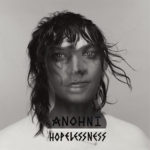 Tough call, but the reason this isn’t Mitski’s “Puberty 2” or Beyonce’s “Lemonade” is because neither artist quite captured the intensity and diversity of heartache – and these are all sublime records whose central theme is that of violent retribution – of Anonhi’s “Hopelessness”. That isn’t to say that this is a hard slog but Anonhi’s first album as a trans artist and without the Johnsons features her most accessible and exciting material to date. Touted initially as a dance record, “Hopelessness” undoubtedly uses densely modern and electronic R’n’B styles with steely production by Hudson Mohawke and OPN, but sensibly resists the urge to cast Anonhi as some fallen disco diva. Domestic violence, Barack Obama, surveillance culture, climate change and religion are some of the many aspects of its title’s state of mind. Beautiful, haunting, catchy and progressive; Anonhi has old school pop star values and she’s never been more radiant.
Tough call, but the reason this isn’t Mitski’s “Puberty 2” or Beyonce’s “Lemonade” is because neither artist quite captured the intensity and diversity of heartache – and these are all sublime records whose central theme is that of violent retribution – of Anonhi’s “Hopelessness”. That isn’t to say that this is a hard slog but Anonhi’s first album as a trans artist and without the Johnsons features her most accessible and exciting material to date. Touted initially as a dance record, “Hopelessness” undoubtedly uses densely modern and electronic R’n’B styles with steely production by Hudson Mohawke and OPN, but sensibly resists the urge to cast Anonhi as some fallen disco diva. Domestic violence, Barack Obama, surveillance culture, climate change and religion are some of the many aspects of its title’s state of mind. Beautiful, haunting, catchy and progressive; Anonhi has old school pop star values and she’s never been more radiant.
Independent Artist of the Year
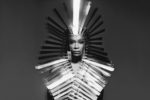 One of the biggest music injustices of the last few years is that Dawn Richard is still not taking up the amount of mainstream, musical media space that she should be. It’s unlikely that this will change with November’s release of her third and final album in the “Heart” series, “Redemption”, and it’s quite possible that this is the way that Richard prefers it. She could now choose to work with producers or collaborators that would propel her into a world she once knew when working with Sean Combs, but this might mean that Richard would have to compromise and this is not a concept that appeals to the tireless, electro-R’n’B artist. “Redemption” feels less conceptual than “Golden and Black” and, although its first half is frenzied and beats heavy, Richard is just as reflective and thoughtful as before. The episodic and ambitious “LA”, featuring an incredible Trombone Shorty play-out, shows just what Dawn Richard is capable of.
One of the biggest music injustices of the last few years is that Dawn Richard is still not taking up the amount of mainstream, musical media space that she should be. It’s unlikely that this will change with November’s release of her third and final album in the “Heart” series, “Redemption”, and it’s quite possible that this is the way that Richard prefers it. She could now choose to work with producers or collaborators that would propel her into a world she once knew when working with Sean Combs, but this might mean that Richard would have to compromise and this is not a concept that appeals to the tireless, electro-R’n’B artist. “Redemption” feels less conceptual than “Golden and Black” and, although its first half is frenzied and beats heavy, Richard is just as reflective and thoughtful as before. The episodic and ambitious “LA”, featuring an incredible Trombone Shorty play-out, shows just what Dawn Richard is capable of.
Album Title of the Year
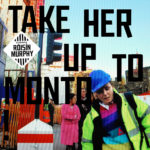 “Monto (Take Her Up to Monto)” is an a 1958 Irish folk song by George Desmond Hodnett which means that Roisin Murphy can’t take sole responsibility for the name of her fourth solo album – “Take Her Up to Monto” . Monto itself is a nickname given to the one-time red light district in Dublin and quite what the relevance to this area and Murphy’s brazenly out-there collection of songs left over from last year’s “Hairless Toys” sessions is unclear. Where that album was curvier and had a deceptively gentle demeanour, “Take Her Up To Monto” is by far a more angular collection which in turn still thankfully indulges Roisin’s flirty and humorous tics. “Thoughts Wasted” is her magnum opus, a by-turns sung electro-pop, spoken-word orchestral stream of consciousness which has a surreality that punctuates the majority of her work whilst being touchingly relatable. Roisin Murphy always acts as though she is a bigger star than she actually is, one day let’s hope that this genuine visionary gets the stage she deserves.
“Monto (Take Her Up to Monto)” is an a 1958 Irish folk song by George Desmond Hodnett which means that Roisin Murphy can’t take sole responsibility for the name of her fourth solo album – “Take Her Up to Monto” . Monto itself is a nickname given to the one-time red light district in Dublin and quite what the relevance to this area and Murphy’s brazenly out-there collection of songs left over from last year’s “Hairless Toys” sessions is unclear. Where that album was curvier and had a deceptively gentle demeanour, “Take Her Up To Monto” is by far a more angular collection which in turn still thankfully indulges Roisin’s flirty and humorous tics. “Thoughts Wasted” is her magnum opus, a by-turns sung electro-pop, spoken-word orchestral stream of consciousness which has a surreality that punctuates the majority of her work whilst being touchingly relatable. Roisin Murphy always acts as though she is a bigger star than she actually is, one day let’s hope that this genuine visionary gets the stage she deserves.
Nearly there of the Year
 Sleigh Bells last two albums have been disappointingly pallid impersonations of their bruising 2010 debut. On “Jessica Rabbit”, Derek E. Miller and Alexis Krauss don’t exactly go back to the drawing board but they do attempt to try some new things. Krauss has always been essential to Sleigh Bells densely layered textures, a key part of the formula but sometimes frustratingly buried, the point maybe, but on occasion there is a yearning to experience her vocals yanked out and pushed high into the mix. This then seems to have been their objective on “Jessica Rabbit”, and obvious highlight “I Can Only Stare” is straightforward pop and Krauss’ voice is the stuff of diva dreams. Other tracks are fantastically bizarrely structured, episodic and bursting with musicality whilst the remainder sadly bottles out on this promise and just delivers more of the same. In part at least then, this is one of the most thrillingly dynamic records released in 2016.
Sleigh Bells last two albums have been disappointingly pallid impersonations of their bruising 2010 debut. On “Jessica Rabbit”, Derek E. Miller and Alexis Krauss don’t exactly go back to the drawing board but they do attempt to try some new things. Krauss has always been essential to Sleigh Bells densely layered textures, a key part of the formula but sometimes frustratingly buried, the point maybe, but on occasion there is a yearning to experience her vocals yanked out and pushed high into the mix. This then seems to have been their objective on “Jessica Rabbit”, and obvious highlight “I Can Only Stare” is straightforward pop and Krauss’ voice is the stuff of diva dreams. Other tracks are fantastically bizarrely structured, episodic and bursting with musicality whilst the remainder sadly bottles out on this promise and just delivers more of the same. In part at least then, this is one of the most thrillingly dynamic records released in 2016.
Disappointment of the Year
 Lady Gaga has thus far been a brilliant and thrilling pop-star but around the arrival of her fourth album, “Joanne”, something changed. Its best tracks are, surprisingly, reminiscent of Bette Midler’s rawer and stripped material from the early 1970s but the majority is sentimental and derivative middle of the road Americana-lite. Shania Twain and Bon Jovi seem key, irony-free references. The fact that the record has constantly been referred to by Gaga, executive producer and nostalgist Mark Ronson, and large parts of the music press as ‘real and authentic’ is profoundly depressing – so what does this make the long period preceding it? Oddly, Joanne feels like the most contrived album of Stefanie Germanotta’s career and one that seems to mark her as a cynical fraud, “Poker Face” being more autobiographical than initially suspected.
Lady Gaga has thus far been a brilliant and thrilling pop-star but around the arrival of her fourth album, “Joanne”, something changed. Its best tracks are, surprisingly, reminiscent of Bette Midler’s rawer and stripped material from the early 1970s but the majority is sentimental and derivative middle of the road Americana-lite. Shania Twain and Bon Jovi seem key, irony-free references. The fact that the record has constantly been referred to by Gaga, executive producer and nostalgist Mark Ronson, and large parts of the music press as ‘real and authentic’ is profoundly depressing – so what does this make the long period preceding it? Oddly, Joanne feels like the most contrived album of Stefanie Germanotta’s career and one that seems to mark her as a cynical fraud, “Poker Face” being more autobiographical than initially suspected.
John Preston’s been writing for MusicRiot for a few years now, but this year he’s started to concentrate on his work for Vada online magazine and we genuinely wish him all the best with that venture. We’ve managed to lure him back for his take on the five best albums of the year. Give some of these a listen, because John really knows his stuff.
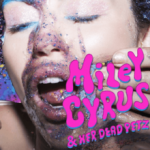 Miley Cyrus – “Miley Cyrus & Her Dead Petz”
Miley Cyrus – “Miley Cyrus & Her Dead Petz”
“Miley Cyrus & Her Dead Petz” is surprisingly sensitive and predominantly mid-tempo with even songs like “Bang My Box” and “Space Boots” being ladled with melancholia and not sounding as you might expect. In a year of Tidal exclusives versus ‘you will buy my album, I don’t care if you pay for streaming’, Miley Cyrus beyonced a brilliant album with minimal fuss for zero pence which anyone with an internet connection could listen to. She continues to piss the right people off and many won’t bother to listen. For someone who grew up with Madonna this is a familiar story and like the gnarly icon herself, Miley Cyrus is far from done.
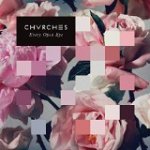 Chvrches – “Every Open Eye”
Chvrches – “Every Open Eye”
The Scottish trio have effectively made the third Yazoo album, the one that the eighties synth-duo never got around to finishing. Tight and upright melodies, shining and exhilarating electronics and with Lauren Mayberry’s regional accent punching out its many kiss-offs, “Leave a Trace” builds on what was promised on their 2013 debut and delivers a flawless start-to-finish album of perfect pop songs. Chvrches have perfected the art of making huge records that sound like the past and future colliding.
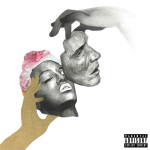 Dawn Richard – “Blackheart”
Dawn Richard – “Blackheart”
Released at the top of the year, the second in a trilogy of albums, “Blackheart” was an often a bleak but breathtakingly beautiful record about redemption. Ultimately uplifting, Dawn Richard manages to cover the old story of hope that’s lost and then found in a new way and within a flinty futuristic soundscape that refuses to conform to traditional R’n’B structures and timeframes. Visionary and fearless, Dawn Richard star continues to rise and rise.
 Lana Del Rey – “Honeymoon”
Lana Del Rey – “Honeymoon”
The oddest pop-star of them all, Lana Del Rey reduces her trademark lyrical tics and sound stylings down to a sticky and claustrophobic pitch-black potion consisting of, you got it, sex, drugs and unrequited love. “Honeymoon” is Del Rey’s most honest and hard-core artistic statement yet with only snatches of camp (“Salvatore” rhymes soft ice cream with limousines) to lift the funereal mood. No longer as needy and as accommodating as before, Lana Del Rey continues to baffle but ultimately proves she is in a league of her own, demanding to be taken seriously.
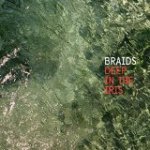 Braids – “Deep In the Iris”
Braids – “Deep In the Iris”
“Miniskirt” is a brittle kick in the gut and Braids most focused and attention-grabbing song of their career. Their third album “Deep in the Iris” has a kitchen sink, melodrama quality and riffs on mid-nineties British synth pop bands like Dubstar and Pet Shop Boys pre-slump. Drum ‘n’ bass, euphoric electro-pop choruses and a theme of sexual identity dominate an album that is far lighter and easy to absorb than this might at first suggest; don’t let Braids pass you by.
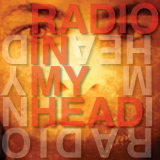 Well that’s just about got the British summer out of the way and we’ve got a few months of good music before the silly season of compilations and box sets starts all over again. After a surprisingly good August, we’ve got a very busy September lined up for you.
Well that’s just about got the British summer out of the way and we’ve got a few months of good music before the silly season of compilations and box sets starts all over again. After a surprisingly good August, we’ve got a very busy September lined up for you.
We’ll be reviewing Texan fiddle player/singer/songwriter Carrie Rodriguez live in London and we should finally get to see the Anna-Christina solo show, “Pretty Little Lady?” towards the end of the month. We’ve also got our only festival review of the summer from Lou; live at Leeds. I’m sure we’ll find a few other gigs to tell you about as well.
John’s going to be reviewing the new material from Ultraista, Dawn Richard, Icona Pop, Natalia Kills and Goldfrapp while I’ve got the debut Dirt Tracks album for you and whatever else the postman or the internet send my way in the next few weeks. The long-awaited Radio (in my) Head project is about to launch and we’ll have some news about that for you next week. We’re also starting a new regular piece featuring links to new music we think you might like to hear. More in a few weeks.
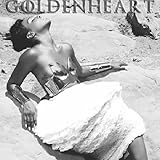 Independent avant r’n’b artist Dawn Richard released an incredible EP last year, “Armor On”, which was actually an album, and has now released her first album which should have been an EP. With 16 tracks and over an hour’s playing time something has been lost along the way after the excitement of “Armor On” and her intriguing and original way of subverting the r’n’b genre, given its tired and wayward state following the golden years of the mid nineties. That’s not to say this a bad record, far from it, it’s just that I was expecting so much; “Goldenheart” makes a very good try but in the final analysis falls a little short of the mark.
Independent avant r’n’b artist Dawn Richard released an incredible EP last year, “Armor On”, which was actually an album, and has now released her first album which should have been an EP. With 16 tracks and over an hour’s playing time something has been lost along the way after the excitement of “Armor On” and her intriguing and original way of subverting the r’n’b genre, given its tired and wayward state following the golden years of the mid nineties. That’s not to say this a bad record, far from it, it’s just that I was expecting so much; “Goldenheart” makes a very good try but in the final analysis falls a little short of the mark.
The first third of Dawn Richard’s debut is the part I have the most trouble with, which is surprising considering it’s almost the most experimental segment, sonically at least. Richard and her producers have a default setting musically; a totally electronic, somewhat ambient, sometimes new-agey, beat-heavy soundscape with recurring (6 tracks) rapid hand claps panning from one side to the other, glassy and chiming sound effects, layered synths and multi-tracked harmonies. It’s a cold, crowded mix but ultimately (weirdly) thin and soulless with the disconcerting end result of certain songs sounding as though the backing track used could be interchangeable and almost irrelevant, such is the similarity between them. It feels as though tracks such as “Gleaux” (pronounced Glow) and “Riot” have been made precisely to demonstrate to Richard’s musical persona and aesthetic but instead end up sounding unfinished and experimental for the sake of it.
“Pretty Wicked Things”, the sixth track, will make you sit up. Richard fans will already know this track as it was the first single from “Goldenheart” and from the eerie, desolate opening through to the unexpected collision of gentle trance pads, vocal effects exploding and a hefty dubstep drop, she has managed to produce a song with real tension and originality sounding nothing like Calvin Harris, Guetta, Skrillex or any of the other big name producers all of whom have gone from the dance genre to that of r’n’b, for better or worse. It’s an impressive achievement and an example of how I expected this album to sound; vocally Richards is a world apart from her contemporaries.
“Warfaire” marks a change in mood musically and the second half of “Goldenheart” is a far stronger and more engaging, warm listen. “Warfaire” is a ballad that has one of the strongest melodies that we’ve heard thus far, it is simple both musically and vocally, impassioned and, (an overused word, but it’s appropriate here) ‘real’. I believed the sentiment based on Richard’s brilliant, affecting performance. And, this is the surprising thing, the tracks that ditch the glitch and the complicated time signatures and honour the more traditional r’n’b/soul blueprint are without question the most cohesive and effective. Punning power ballad “Break of Dawn” sounds like a Diane Warren song that Beyonce would be happy to take to number 1 and, along with the one-off 3 minute electro pop perfection of “In Your Eyes”, is the best song here. “Tug of War” is a persistent, soulful mid-tempo roller and could have featured on Electribe 101’s 1990 album “Electribal Memories” and current single, again mid-tempo, “86” is more than a little indebted sonically to Prince’s “Little Red Corvette” but is very much its own odd, unclassifiable creation that expands in power with each listen. The most audacious song though is the title track, Richard’s sumptuous harmonies echoing over Debussy’s ‘Clair de Lune’, it’s straightforward and maybe a little stand-offish but you have to admire her nerve for even attempting it.
All in all “Goldenheart” is clearly a labour of love which could have been an exceptional debut but ends up being a very good one, due mainly to its unwieldy track listing and running time and a pandering to a style which may not be the one that best suits Dawn Richard’s undeniable talent. This album is apparently the first album of three and I very much look forward to the next instalment from this curious, ambitious and intelligent artist.


